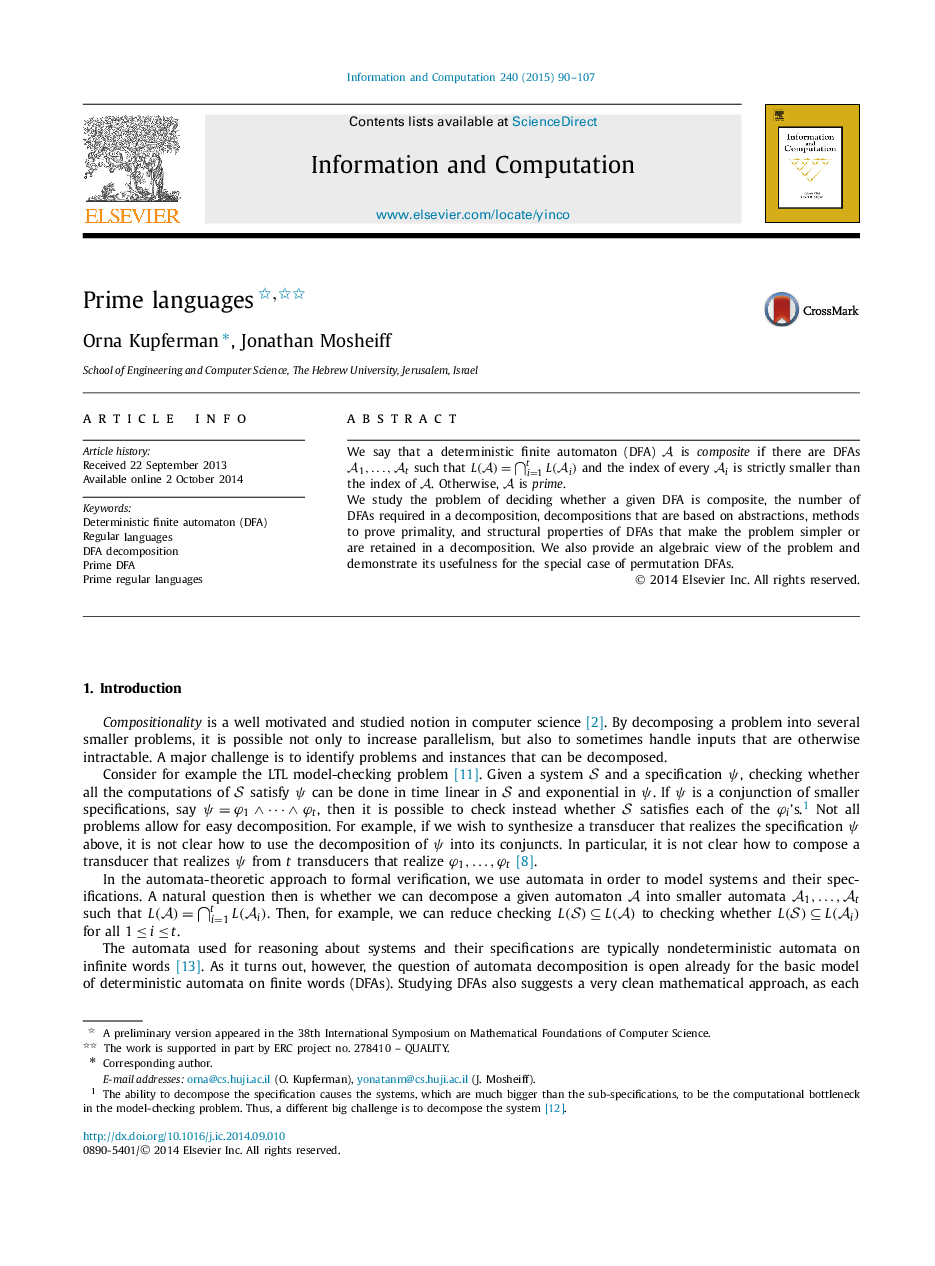| Article ID | Journal | Published Year | Pages | File Type |
|---|---|---|---|---|
| 426423 | Information and Computation | 2015 | 18 Pages |
Abstract
We say that a deterministic finite automaton (DFA) AA is composite if there are DFAs A1,…,AtA1,…,At such that L(A)=⋂i=1tL(Ai) and the index of every AiAi is strictly smaller than the index of AA. Otherwise, AA is prime.We study the problem of deciding whether a given DFA is composite, the number of DFAs required in a decomposition, decompositions that are based on abstractions, methods to prove primality, and structural properties of DFAs that make the problem simpler or are retained in a decomposition. We also provide an algebraic view of the problem and demonstrate its usefulness for the special case of permutation DFAs.
Keywords
Related Topics
Physical Sciences and Engineering
Computer Science
Computational Theory and Mathematics
Authors
Orna Kupferman, Jonathan Mosheiff,
